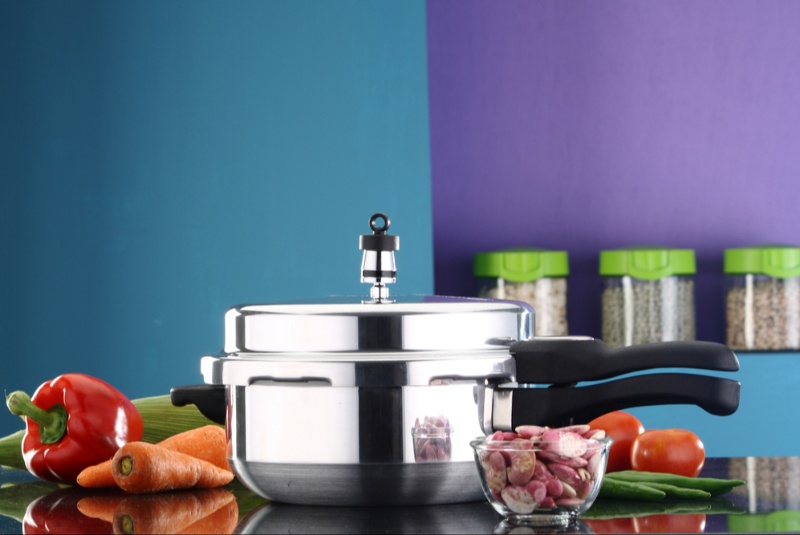The modern kitchen thrives on efficiency and convenience, and a pressure cooker is a quintessential embodiment of these virtues. Whether you're an aspiring chef or a home cook looking to streamline your meal prep, understanding how to select the right pressure cooker can transform your culinary experiences. This guide demystifies the process, ensuring you make a well-informed decision that meets your cooking needs and preferences.
Understanding Pressure Cooker Types
The first step in choosing a pressure cooker is to familiarize yourself with the different types available. The two primary categories are stovetop and electric pressure cookers. Stovetop models are known for their durability and high performance, capable of reaching higher pressures and temperatures than their electric counterparts. They offer a traditional cooking experience, requiring manual heat adjustment to maintain pressure. Electric pressure cookers, on the other hand, are prized for their convenience and versatility. These models automatically regulate temperature and pressure, often featuring multiple cooking functions beyond pressure cooking, such as slow cooking, steaming, and sautéing.
Your choice between stovetop and electric will depend on your cooking style, kitchen space, and convenience preferences. Stovetop pressure cookers are ideal for those who appreciate precise control over their cooking, while electric models suit those looking for an all-in-one appliance that simplifies meal preparation.
Capacity Matters
The size of the pressure cooker is a critical factor to consider, as it directly impacts how much food you can prepare at once. Pressure cookers typically range in capacity from 3 to 10 quarts. Smaller units are perfect for singles or couples, whereas larger families or those who entertain often may find the bigger sizes more practical.
When selecting a size, also consider your storage space and the types of dishes you plan to prepare. A larger pressure cooker requires more storage space, but it offers the versatility to cook whole chickens or large cuts of meat. On the other hand, a smaller model may be more convenient for everyday use and easier to handle.
Material and Construction Quality
The material from which a pressure cooker is made affects its durability, heat conductivity, and overall quality. Most pressure cookers are constructed from stainless steel or aluminum. Stainless steel models are highly durable, resistant to rust and corrosion, and do not react with acidic foods. However, they can be heavier and more expensive. Aluminum pressure cookers are lighter and offer excellent heat conductivity, resulting in faster cooking times. However, they are more prone to dents and scratches and may react with acidic ingredients, affecting the food's flavor.
Some pressure cookers feature a stainless steel body with an aluminum-clad base, combining the best of both worlds: durability and efficient heat distribution. Consider your priorities and budget when choosing the material.
Safety Features
Safety is paramount when it comes to pressure cooking, due to the high pressure and temperatures involved. Modern pressure cookers come equipped with multiple safety features, including pressure release valves, locking lids that prevent opening under pressure, and overpressure plugs that release excess pressure.
Ensure the model you choose has these essential safety mechanisms in place. A pressure cooker that prioritizes safety can offer peace of mind and prevent accidents in the kitchen, making the cooking process more enjoyable and stress-free.

Ease of Use and Cleaning
Convenience in both use and maintenance is a key consideration. Electric pressure cookers often feature digital controls and pre-set cooking programs, making them incredibly user-friendly, especially for beginners. Look for models with intuitive interfaces and clear displays.
Cleaning should also be straightforward. A pressure cooker with removable parts, such as the inner pot and sealing ring, can make cleanup much simpler. Many electric pressure cookers have dishwasher-safe components, further easing the post-cooking process.
Brand Reputation and Warranty
The brand's reputation can be a good indicator of the pressure cooker's quality and durability. Opt for manufacturers with a history of producing reliable, high-quality kitchen appliances. Customer reviews and ratings can also provide insights into the performance and longevity of different models.
Additionally, consider the warranty offered with the pressure cooker. A longer warranty period reflects the manufacturer's confidence in their product and provides added security for your investment. Some brands offer warranties that extend for several years, covering defects in materials and workmanship.
Additional Features and Accessories
Electric pressure cookers, in particular, may come with additional features and accessories that enhance their functionality. These can include delayed start timers, keep-warm functions, and various cooking programs for specific foods like rice, yogurt, or stew. While not essential, these features can add value and convenience to your cooking experience.
Accessories such as steamer baskets, trivets, and extra sealing rings can also be beneficial, allowing you to maximize the versatility of your pressure cooker. Consider which features and accessories are most important to you and ensure the model you choose includes them or offers them as add-ons.
Purchasing a pressure cooker is an investment in your culinary efficiency and creativity. By considering the type, capacity, material, safety features, ease of use, brand reputation, warranty, and additional features, you can select a pressure cooker that meets your specific needs and enhances your cooking experience. Whether you're preparing quick weeknight dinners or gourmet meals, the right pressure cooker can be your ally in the kitchen, helping you cook delicious, nutritious meals with ease. Remember, the best pressure cooker is one that aligns with your lifestyle, cooking preferences, and budget, empowering you to explore a world of culinary possibilities.




